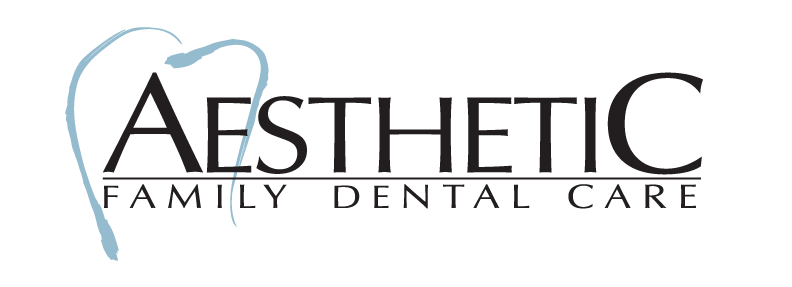Is Coffee Bad for Teeth?
Is Coffee Bad for Teeth?
Coffee is one of the most popular beverages worldwide, but its impact on dental health often sparks concern. While coffee offers several health benefits, it can pose challenges to your oral health if not consumed mindfully. Let’s explore how coffee affects your teeth and ways to minimize its impact.
What Makes Coffee Harmful to Teeth?
Coffee contains compounds and properties that can affect your teeth negatively over time.
Acidity in Coffee
Coffee is naturally acidic, with a pH of around 4.5–5. This acidity can erode tooth enamel over time, making teeth more susceptible to decay.
Staining Compounds
Coffee contains tannins, which are responsible for its dark color. These tannins adhere to the surface of teeth, causing discoloration.
Dehydration Effects
Coffee can lead to a dry mouth, reducing saliva production, which is essential for neutralizing acids and maintaining oral health.
How Does Coffee Affect Your Teeth?
Enamel Erosion
The acidic nature of coffee gradually wears down the protective enamel, leaving teeth more vulnerable to sensitivity and decay.
Discoloration
Frequent coffee consumption leads to yellow or brown stains on the teeth, especially if proper oral hygiene is not maintained.
Increased Risk of Cavities
When coffee is consumed with sugar or cream, it increases the risk of cavity formation due to lingering sugars in the mouth.
Does Coffee Stain Teeth?
Yes, coffee is a significant contributor to teeth staining.
How Stains Develop
Tannins in coffee adhere to the porous enamel surface, causing visible stains over time.
Difference Between Extrinsic and Intrinsic Stains
Extrinsic Stains: Occur on the surface and can often be removed with whitening products.
Intrinsic Stains: Penetrate deeper into the tooth and may require professional treatment.
Can Coffee Damage Tooth Enamel?
The acidity of coffee weakens enamel, making teeth more prone to damage.
Role of pH Levels
Coffee’s low pH level contributes to enamel erosion, particularly with prolonged exposure.
Long-Term Effects of Acidity on Enamel
Thinner enamel can lead to increased sensitivity and a higher risk of decay.
How to Minimize Coffee’s Effects on Teeth
Drink Water After Coffee: Rinsing your mouth with water helps wash away tannins and acids.
Use a Straw: A straw reduces direct contact between coffee and your teeth.
Maintain Proper Oral Hygiene: Brushing and flossing regularly can combat stains and decay.
Is Black Coffee Worse for Your Teeth?
Comparison with Coffee with Cream or Sugar
While black coffee may cause more staining due to its concentrated tannins, adding cream and sugar introduces additional risks for cavities.
Effects of Additives on Dental Health
Sugary additives linger in the mouth, feeding harmful bacteria that cause tooth decay.
Benefits of Coffee for Oral Health
Despite its drawbacks, coffee has some surprising benefits for oral health:
Antioxidants in Coffee: These compounds may reduce inflammation and improve gum health.
Potential to Reduce Gum Disease Risks: Studies suggest moderate coffee consumption might lower the risk of periodontal disease.
How Often Can You Drink Coffee Safely?
Moderation is key. Limiting coffee intake to 1–2 cups per day can help minimize its impact on your teeth.
Tips for Moderation
Alternate coffee with water or milk.
Avoid sipping coffee throughout the day to reduce prolonged exposure.
Best Practices for Coffee Lovers
Rinse with Water: Neutralize acids immediately after drinking coffee.
Schedule Regular Cleanings: Professional cleanings can remove stubborn stains.
Use Whitening Products: Whitening toothpaste or strips can help maintain a brighter smile.
Professional Teeth Whitening for Coffee Stains
If stains persist, professional whitening treatments can deliver dramatic results.
Available Whitening Treatments
In-office laser whitening.
Custom-fitted whitening trays for at-home use.
Benefits of Professional Cleaning
Removes both surface and deep stains.
Protects enamel while delivering a brighter smile.
Why Choose Our Practice for Dental Care?
Located in Mesa and Chandler, AZ, our dental team specializes in treating coffee-related dental concerns.
Expertise Includes
Teeth whitening tailored to coffee drinkers.
Comprehensive care plans for enamel protection and stain removal.
FAQs
Does coffee permanently stain teeth?
No, most coffee stains are surface-level and can be removed with proper care or professional treatments.
Can whitening toothpaste remove coffee stains?
Yes, whitening toothpaste can help reduce mild stains but may not be sufficient for deeper discoloration.
Should I stop drinking coffee altogether?
Not necessarily. With proper precautions, you can enjoy coffee without significant harm to your teeth.
Is iced coffee less harmful to teeth?
No, iced coffee has the same tannins and acidity as hot coffee. Using a straw can help reduce its impact.
Does adding milk reduce staining?
Yes, milk can dilute tannins and reduce their ability to stick to enamel.
How long does it take to whiten coffee-stained teeth?
Professional whitening treatments typically show results in a single session, while at-home methods may take several weeks.
Is Coffee Bad for Teeth?
Coffee can contribute to enamel erosion and staining, but with mindful consumption and proper care, you can minimize its effects. To protect your smile, consider scheduling a consultation with our Mesa or Chandler, AZ dental practice today!
